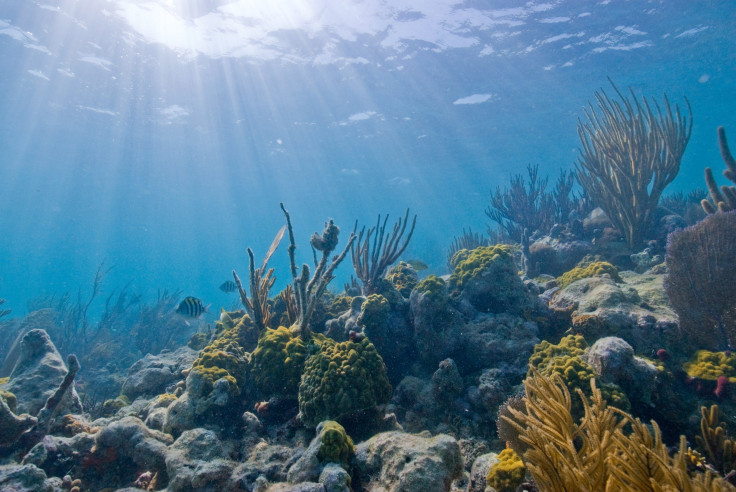Climate Change News: Coral Bleaching Is A Major Threat

Coral bleaching is happening at an alarming rate thanks to climate change, and scientists are scrambling to find a way to stop it.
Warming waters are the major culprit of the bleaching that’s occurred in the last 30 years or so, but over fishing and pollution have a hand in it as well, according to the National Oceanic Atmospheric Administration.
Read: CO2 And Climate Change: Human Activity Causes Global Warming
Corals can be found in the oceans around the equator and need certain conditions to survive and to be healthy. Not only do they support extensive ecosystems in the ocean, they also protect shorelines from surging waters. But as water temperatures have risen, the coral has been losing algae and bleaching.
Half of the coral reefs the United States had in the Caribbean fell victim to coral bleaching in 2005 and it was later concluded that the bleaching was due to warm waters. The stress those corals were under was more than they had sustained in the 20 years prior.
What is coral bleaching?
When corals are under stress due to a changing environment, they lose the algae that lives in their tissue and provides nutrients and the vivid colors we’re used to seeing. Once the coral has lost its algae it turns white. The white color doesn’t mean it’s dead, but it’s at risk because without the algae it’s exposed more at risk. If the conditions that caused the coral to lose the algae improve the coral can recover from the bleaching event, but this doesn’t always happen.
What is ocean acidification?
When the ocean absorbs CO2 from the air, not only does that CO2 increase the temperature of the water, and cause more ice melt, but it also causes ocean acidification. This means that the CO2 reacts with the chemicals in the ocean, and that reaction leads to a change in the pH of the ocean, and the water becomes more acidic. More acidic water means that carbonate ions become scarcer. Those ions help shells, corals, plankton and other organisms make their shells and structures. So a more acidic ocean makes life harder for those organisms.
Between bleaching and ocean acidification, corals are in danger. Major coral reefs like the Great Barrier have gotten attention over the years, but the others need saving as well. The Ocean Agency, a nonprofit based in Sydney, Australia, started a project to protect reefs across the globe. The 50 Reefs project will identify the reefs that need the most attention to keep corals world wide alive.
"The 50 Reefs initiative starts with a vital scientific study, overseen by a panel of the world's leading experts. It will identify where we should be prioritizing our efforts globally, to ensure the long-term survival and recovery of coral reefs," says the 50 Reefs website. The hope is that by creating a worldwide plan, the reefs that are still viable can be saved and protected before it's too late.
© Copyright IBTimes 2024. All rights reserved.



















